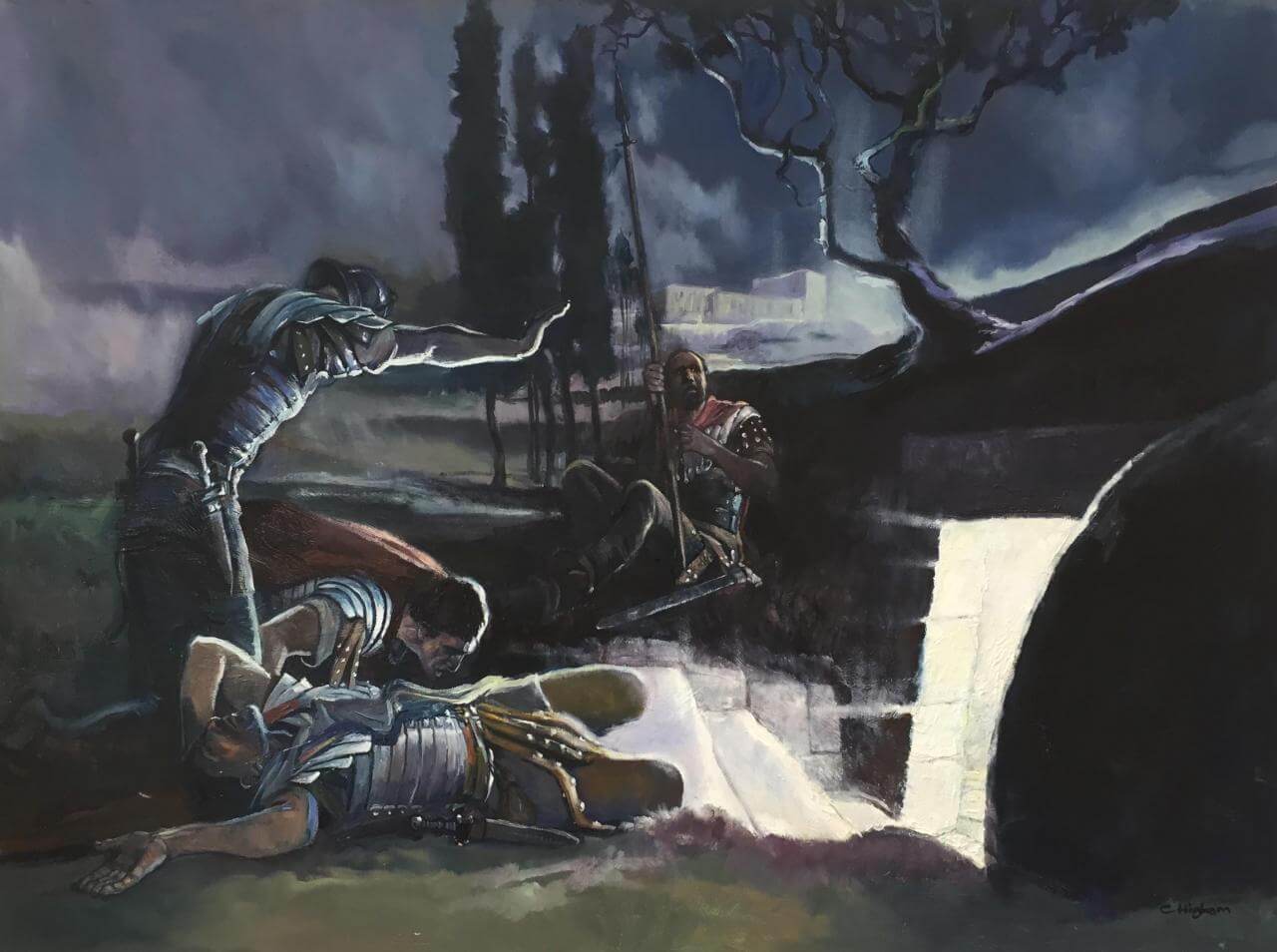Blog Search Results

Did you mean:
origin
?
9 results for Origen
found
within the Blog
6 displayed out of 9 (0.03seconds)Page 1 of 2

Does Christmas have pagan origins?
Posted by Luke J. Wilson on 19th December 2019 in Christmas | christmas,xmas,origins,pagan,pagan roots,church fathers,church history,Saturnalia,Epiphany,Annunciation,Tertullian,Origen,john chrysostom,incarnation,liturgical calendar,church calendar,festivals
...onger do. Origen (~248 AD) even mentions that in his own day, “there is displayed at Bethlehem the cave where Jesus was born”, and that “this sight is greatly talked of in the surrounding places—even among the enemies of the faith” (now known as The Church of the Nativity)!
The first person we see write about a specific date of the birth is Clement of Alexandria around 195 AD in book one of The Stromata, and he speaks about others who have tried to pinpoint the exact day and month of Jesus’ birth, which brings up a variety of dates:
From the birth of Christ, therefore, to the death of Commodus [December 192 AD] are, in all, a hundred and ninety-f...
What is Monarchical Trinitarianism?
Posted by Luke J. Wilson on 21st July 2024 in Trinity | trinity,monarchy of the Father,Monarchical Trinitarianism,church fathers,church history
...Godhead. Origen articulates this succinctly in his De Principiis, “…it may be understood that the Son is not of a different goodness, but of that only which exists in the Father, of whom He is rightly termed the image, because He proceeds from no other source but from that primal goodness, lest there might appear to be in the Son a different goodness from that which is in the Father.” (Origen, De Principiis, Book 1, Chapter 2.13).
While Origen’s language reflects a certain subordination in terms of order or generation, not essence, it points to the Father’s role as the uncreated fountainhead of divinity. This view no doubt comes from the New Testamen...
The Early Concept of the Trinity: Tracing the Roots
Posted by Luke J. Wilson on 16th November 2023 in Trinity | trinity,early church,early church fathers,tri-unity,triune God,godhead
..., too, as Origen of Alexandria (AD 185—284) and Eusebius of Caesarea (AD 260—340) maintained that Clement of Rome was the same Clement mentioned by the apostle Paul in Philippians 4:3. Irenaeus of Lyons (AD 130—200) also tells us that “this man [Clement], as he had seen the blessed apostles, and had been conversant with them, might be said to have the preaching of the apostles still echoing [in his ears], and their traditions before his eyes” (Against Heresies 3:3). So, his letter provides important context when discussing this topic and what apostolic teaching was.
Likewise, Justin Martyr, writing around AD 150, in chapter 13 of his First Apology wri...
Who is the New Jerusalem?
Posted by Luke J. Wilson on 6th January 2016 in Second Coming Series | Revelation,New Jerusalem,The Church,Holy City,Early Church,Early Church Fathers,Eusebius,Origen,Barnabas,millennium,millennial reign,1000 years,New Heaven and Earth
...ew."
– Origen (2nd Century), Principles, 2:6:4
The Holy City
With that in mind, let’s examine the rest of the description of the New Jerusalem. Verse three continues to build on the conjoining of the Heaven and Earth imagery:
Rev 21:3
See, the home of God is among mortals, He will dwell with them;
they will be his peoples, and God himself will be with them
God coming down to live in and with his people isn’t some new concept just found in Revelation either; we see this mentioned quite frequently in the New Testament:
John 14:23Jesus answered, “If anyone loves Me, he will keep My word. My Father will love him, and We will come to...
Raised in the Heavenlies!
Posted by Luke J. Wilson on 27th March 2016 in Easter | resurrection,Jesus,new birth,new life,born again,baptism,spiritual resurrection,physical resurrection,glorified bodies,third day,Easter,easter sunday
...t human.
Origen captures this concept well in his book Contra Celsus;
“After his resurrection, Christ existed in an intermediate state, as it were. For it was somewhere between the physicalness of the body He had before his sufferings and the appearance of a soul uncovered by such a body. It was for this reason that … Jesus came and stood in [the disciples] midst, even though the doors were shut.”
– Origen, Contra Celsus, Book II, ch.62
Paul spends quite some time on the resurrection and explaining what it means and how it will be, though it is a topic that will always be limited by our human understanding, which is why the nature of the resurr...
The Coming of Jesus: The Olivet Discourse – Part 2
Posted by Luke J. Wilson on 3rd February 2016 in Second Coming Series | Second Coming,Return of Christ,Return of Jesus,Preterism,Prophecy,Last Days,Left Behind,Eschatology,Matthew 24,Olivet Discourse,Josephus,history,Part 2,Desolation,Temple Destruction,Jewish War,70AD
...r view."
Origen (2nd Century), Principles, 2:6:4
"Thus there was a final end to the Old Testament world: all was finished with a kind of day of judgment, in which the people of God were saved, and His enemies terribly destroyed.”
Jonathan Edwards (1739), History of Redemption, vol. i. p. 445
"And the dissolution of the Jewish state was often spoken of in the Old Testament as the end of the world. But we who belong to the gospel-church, belong to the new creation; and therefore there seems to be at least as much reason, that we should commemorate the work of this creation, as that the members of the ancient Jewish church should commemorate the work...

